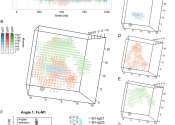An animal model is a non-human animal that has a disease or injury that is similar to a human condition. These test conditions are often termed as animal models of disease. The use of animal models allows researchers to investigate disease states in ways which would be inaccessible in a human patient, performing procedures on the non-human animal that imply a level of harm that would not be considered ethical to inflict on a human.
In order to serve as a useful model, a modeled disease must be similar in etiology (mechanism of cause) and function to the human equivalent. Animal models are used to learn more about a disease, its diagnosis and its treatment. For instance, behavioral analogues of anxiety or pain in laboratory animals can be used to screen and test new drugs for the treatment of these conditions in humans. A 2000 study found that animal models predicted human toxicity in 71% of cases, with 63% for nonrodents alone and 43% for rodents alone.
Animal models of disease can be spontaneous (naturally occurring in animals), or be induced by physical, chemical or biological means. For example,
The increase in knowledge of the genomes of non-human primates and other mammals that are genetically close to humans is allowing the production of genetically engineered animal tissues, organs and even animal species which express human diseases, providing a more robust model of human diseases in an animal model.
Animal models observed in the sciences of psychology and sociology are often termed animal models of behavior.
In quantitative genetics, the term animal model is used to refer to statistical models in which phenotypic variance is compartmentalised into environmental, genetic and sometimes maternal effects. Such animal models are also known as "mixed models".









